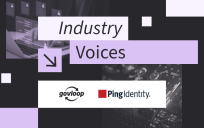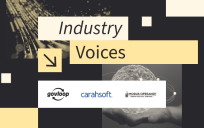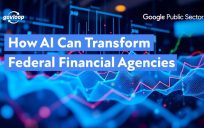As federal agencies face increasing pressure to modernize, streamline operations, and build public trust, artificial intelligence (AI) is emerging as a critical tool for achieving these goals. But leveraging AI at scale isn’t just about experimentation. It also requires long-term strategy, responsible implementation, and a future-ready workforce.
From summarizing public comments to automating internal workflows, AI is already helping civil servants reduce manual burdens and redirect their focus to high-impact priorities. But this shift also reinforces the need for strong governance, workforce engagement, and cross-sector collaboration to ensure AI is used responsibly and effectively.
Why Responsible AI Matters
As AI adoption accelerates, so do concerns about bias, accountability, and transparency. Federal agencies are increasingly turning to frameworks such as the NIST AI Risk Management Framework to establish clear principles and processes for managing AI-related risks. These frameworks help agencies ensure that AI systems are fair, explainable, and aligned with their missions and values.
Responsible AI isn’t just about compliance. It’s about building the public’s trust in digital services. Government agencies must be stewards of public data and decision-making. That means embedding accountability mechanisms and clear governance models into every AI deployment.
Four Ways to Prepare for Long-Term Success
Agencies that want to build a sustainable foundation for AI innovation should consider these key focus areas:
- Governance From the Start: Agencies must integrate AI oversight into existing data governance and IT modernization strategies. This includes designating responsible AI leads, clarifying review processes for AI projects, and ensuring alignment with existing privacy and security mandates.
Having clear governance in place makes it easier to scale AI across programs without sacrificing safety, ethics, or transparency.
- Empowering the Workforce With AI Tools: AI shouldn’t be seen as a replacement for human expertise, but as a way to elevate it. Civil servants are already using AI to accelerate common tasks by analyzing comments, drafting documents, or extracting insights from policy texts.
Equipping teams with AI tools also means offering the right training. Agencies should invest in upskilling programs to help employees build confidence in using AI responsibly and understand its limitations.
- Automating for Efficiency and Impact: Workflow automation is one of the most immediate opportunities for agencies looking to reduce cost and improve efficiency. From HR and finance to IT support and case management, AI can help automate repetitive tasks and streamline approvals, leaving more time for judgment-based decision-making.
Even modest automation efforts can lead to savings of 25 to 35% annually, according to internal estimates from federal modernization initiatives.
- Strengthening Cross-Agency and International Collaboration: AI development doesn’t happen in a vacuum. Agencies benefit by sharing best practices across departments and with international partners. Collaboration fosters alignment around responsible use, especially when AI systems interact across borders or involve shared data.
Public-private partnerships can also accelerate responsible adoption. The private sector often leads in AI R&D, and federal agencies can benefit from proven tools, diverse datasets, and early-stage innovation — provided these tools are evaluated carefully and implemented with safeguards.
Looking Ahead
From improving service delivery to accelerating modernization, AI holds enormous promise for the public sector. However, realizing that promise requires thoughtful planning and trust-based implementation.
As the federal government looks toward a future defined by smarter, more adaptive systems, success will depend not just on the technologies agencies adopt, but on how they choose to govern, deploy, and sustain them. The future-ready government isn’t just automated. It’s also accountable, accessible, and aligned with the people it serves.
As General Manager Federal Civilian at Microsoft, Dan Coleman is responsible for the strategic positioning and successful delivery of Cloud and Enterprise Services to Microsoft’s Public Sector customers.





Leave a Reply
You must be logged in to post a comment.